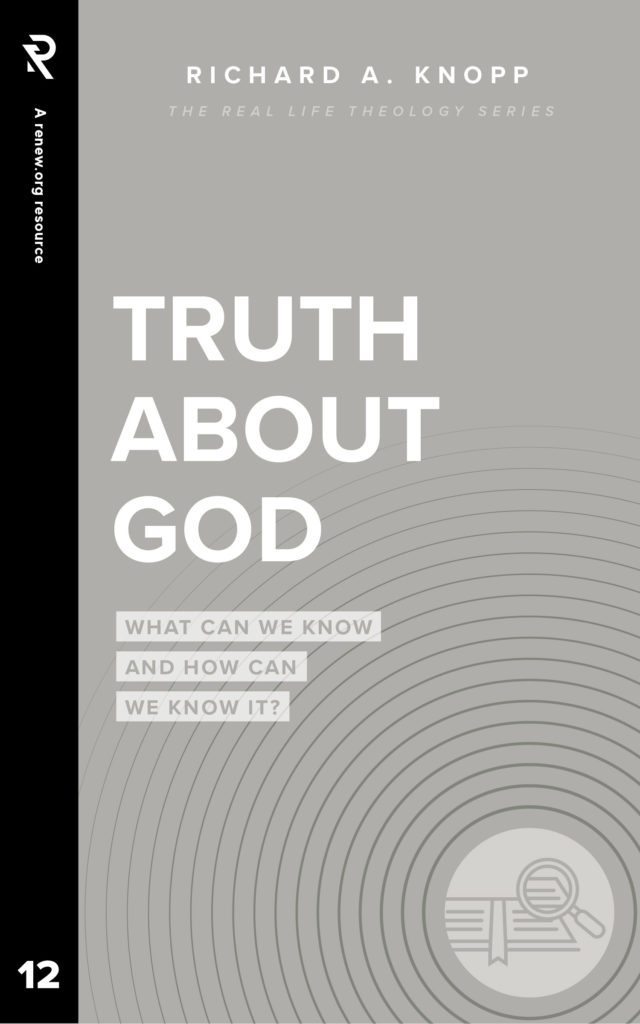
What is Atheism? Definitions, Demographics, & Types of Atheists (Part 1)
What is atheism? Although some atheists define atheism weakly as merely a lack of belief in gods, atheism is traditionally more than a denial: It is the belief that no God or gods exist.
I always thought there was a basic consensus on what atheism is, and within a small measure of difference, I still do. Is it not the denial of God or gods? Most references to which I go essentially say that atheism is the belief that there is no God nor gods.
At www.atheists.org, however, atheism is defined as follows:
Atheism is one thing: A lack of belief in gods. Atheism is not an affirmative belief that there is no god…It is simply a rejection of the assertion that there are gods…To be clear: Atheism is not a disbelief in gods or a denial of gods; it is a lack of belief in gods.
Likewise, at www.atheistalliance.org, we find the following similar definition:
Theism is the belief in a god or gods. The prefix ‘a’ [in front of theism] means; ‘without’ or ‘lack of’. Therefore, atheism means ‘without a belief in a god or gods’ or the ‘lack of a belief in a god or gods’.
Lacking a belief in a god does not entail believing that no gods exist. A person could reasonably say she doesn’t know if any gods exist, and there are none that she currently believes in…It is not necessary for an atheist to claim that no gods exist.
“Does ‘lack of belief’ truly define atheism?”
Contrary to what I feel is the consensus of most people, both sites call atheism a “lack of belief” and don’t equate it to a pure denial of God. Okay, but does “lack of belief” truly define atheism? A “lack of belief” is a passive, nonchalant, “I could care less” approach to gods or God.
Tim Barnett at Stand to Reason (www.str.org/w/atheism-isn-t-simply-a-lack-of-belief) says, “People don’t write books about things they don’t have any beliefs about. No one debates about non-beliefs. If they did, there would be nothing to talk about.”
What is Atheism? Lack of Belief, or a Firm Denial of Belief?
A mere “lack of belief” in gods is more likely to cause an utter disinterest rather than volumes of challenges to a Deity or deities. So, why do these two atheist sites spend so much time on the issue, and why do they offer us such a soft view of atheism? Their definitions are more representative of agnosticism than atheism.
The Encyclopedia Britannica defines atheism as the
critique and denial of metaphysical beliefs in God or spiritual beings…it is usually distinguished from theism, which affirms the reality of the divine and often seeks to demonstrate its existence. Atheism is also distinguished from agnosticism, which leaves open the question whether there is a god or not…
The text continues by affirming that atheism is a categorical rejection of the existence of God and not simply “lacking a belief in a god.” Specifically stated, “Atheism is a denial of God or of the gods, and if religion is defined in terms of belief in spiritual beings, then atheism is the rejection of all religious belief.”
What is atheism? “Atheism is a denial of God or of the gods.”
I’m suggesting that the definitions of atheism at these two atheist sites do not fit the common understanding of atheism being a firm denial of God. It’s worth asking why they offer us such a weak, nuanced view? Are they trying to make their view more acceptable? Are they just attempting to be friendlier, part of a strategy to create a better image? Public image is most definitely a problem for atheists, a phenomena we will be visiting in a later article.
What is Atheism? Looking at the Demographics of Belief
The simple question of asking for the demographics of belief in God are anything but simple. In an article by Frank Newport, Most Americans Still Believe in God, his not surprising observation is
The answer to how many Americans believe in God depends on how the question is asked. Gallup has measured U.S. adults’ belief in God three different ways in recent years, with varying results. And those variations have persisted, even as belief on all three has trended downward since the early 2000s.
Gallup’s Latest Poll
In June, 2022, Gallup published its latest poll on belief in God. The results show the continuing decline in America of believing in God (Values and Belief poll, conducted May 2 to 22). Gallup first asked this question in 1944, again in 1947, and twice each in the 1950’s and 60’s. The results were consistent that 98% of Americans believed in God. Five decades later in 2011 the number had declined to 92%. From there the decline dipped to 87% from 2013 to 2017. However, the latest data from May of 2022 shows a drop to 81%.
Gallup reports that
The groups with the largest declines are also the groups that are currently least likely to believe in God, including liberals (62%), young adults (68%) and Democrats (72%). Belief in God is highest among political conservatives (94%) and Republicans (92%), reflecting that religiosity is a major determinant of political divisions in the U.S.
I had originally hoped to present data from the Barna Group and PEW Research, as both are active in polling religion and topics within religion. However, I could not find data that was as current as Gallup, nor was of sufficient comparison.
What is Atheism? Categorizing the Kinds of Atheists
“17 Kinds of Atheism” are listed at www.commonsenseatheism.com, including indifferent atheists, friendly atheists, casual atheists, closet atheists, passive atheists, open atheists, evangelical atheists, active atheists, militant atheists, humanist atheists, and intellectual atheists. Mixing and matching them would give us a mind-numbing greater list.
Atheist John Gray in his book Seven Types of Atheism disparages five of the seven types below, most especially the “new atheism” of Richard Dawkins, Christopher Hitchens, Sam Harris and Daniel Dennett, and defines the seven types as follows:
- the “new atheists,” which he calls the “least interesting”
- “secular humanism,” represented by John Stewart Mill and Bertrand Russell
- “atheism that makes a religion out of science,” such as “evolutionary humanism, mesmerism, dialectical materialism and transhumanism”
- “Turning politics into a form of religion (“under such guises as Jacobinism, Nazism, communism and evangelical liberalism”)
- “God-haters such as the Marquis de Sade and Ivan Karamazov.”
- unsentimental atheism – atheists who are happy to be in a godless world
- mystical atheism – According to Gray, “A godless world is as mysterious as one suffused with divinity.”
I conclude that anybody’s list is probably as good as anyone else’s. Here is my preferred breakdown. (Note: the majority of quotes that follow were initially found at www.goodreads.com and validated at other sites).
What is atheism and what are the main types of atheists? Here’s my preferred breakdown.
Friendly Atheists
By no means do atheists demonstrate the same kinds of behavior and mindsets. There are friendly atheists, this best demonstrated by Hemant Mehta’s Friendly Atheist blog at “Patheos,” where “he and his associates publish articles and co-host a weekly podcast called the Friendly Atheist Podcast.”
Hollywood Atheists
From Hollywood we have a variety of types. For example, actress Helen Mirren says rather enigmatically, “[I’m] a Christian who doesn’t believe in God”. Woody Allen says, “To God, I’m just the loyal opposition.” Comedian George Carlin declares, “Atheism is a non-prophet organization.”
Humorous Atheists
I can’t resist featuring Woody Allen again with two quotes, the first being: “I’m what you call a teleological existential atheist. I believe there’s an intelligence to the universe with the exception of certain parts of New Jersey.” And second, “Not only is there no god, but try getting a plumber on weekends.”
Hostile Atheists
In contrast, we have Ron Reagan (“Jr”) exclaiming, “I’m Ron Reagan, an unabashed lifelong atheist, not afraid of burning in hell.” Regarding Scripture’s Abraham and Isaac, he says, “Abraham should have told God to ‘Go to hell.’”
In The God Delusion, atheist Richard Dawkins spews the following:
The God of the Old Testament is arguably the most unpleasant character in all fiction: jealous and proud of it; a petty, unjust, unforgiving control-freak; a vindictive, bloodthirsty ethnic cleanser; a misogynistic, homophobic, racist, infanticidal, genocidal, filicidal, pestilential, megalomaniacal, sadomasochistic, capriciously malevolent bully.
Comedian Sarah Silverman says, “Jesus’ words have become so perverted over time—it’s been like a game of telephone. If he existed, he would [effing] kill himself.” I’ve found that no subject or vile reference is off-base for Silverman, whether it’s about sex, bodily functions, or any topic requiring a good dose of depravity.
“The God of the Old Testament is arguably the most unpleasant character in all fiction.”
Hopeful/Open Atheists
Actor Jack Nicholson explains, “I don’t believe in God now. I can still work up an envy for someone who has a faith. I can see how that could be a deeply soothing experience.” Richard Branson, business magnate and investor, says, “I would love to believe. It’s very comforting to believe.”
Arrogant Atheists
Voltairine de Cleyre, American anarchist wrote, “I die, as I have lived, a free spirit, an Anarchist, owing no allegiance to rulers, heavenly or earthly.” According to H. L. Menken, an American journalist, “Religion is fundamentally opposed to everything I hold in veneration – courage, clear thinking, honesty, fairness, and, above all, love of the truth.” At the Emmy Awards, comedian Kathy Griffin said, “A lot of people come up here and thank Jesus for this award. I want you to know that no one had less to do with this award than Jesus…this award is my god now.”
Ignorant Atheists
A quick explanation: By “ignorant,” I mean someone who is wholly unknowledgeable of Scripture, either willfully or inadvertently. For example, Mark Twain says, “The Bible has noble poetry in it…and some good morals and a wealth of obscenity, and upwards of a thousand lies.”
In God Is Not Great, Christopher Hitchens states,
The Bible may, indeed does, contain a warrant for trafficking in humans, for ethnic cleansing, for slavery, for bride-price, and for indiscriminate massacre, but we are not bound by any of it because it was put together by crude, uncultured human mammals.
“The Bible..was put together by crude, uncultured human mammals.”
Nihilistic Atheists
Actor Joaquin Phoenix explained, “I don’t believe in God. I don’t believe in an afterlife. I don’t believe in a soul. I don’t believe in anything.” I don’t presume to know his approach to life, but if his sentiments here are not just symptomatic of a bad day, but more representative of his overall mindset, nihilism would rule, the view that nothing has any real meaning and that humanity has no inherent value. I’ll give him the benefit of doubt—maybe it’s just hyperbole.
Dismissive Atheists
Percy Bysshe Shelley, English poet, says simply, “There is no God.” American movie director Stanley Kubrick tells us, “The whole idea of god is absurd.” Margaret Sanger, American birth control activist, opined, “No gods, no masters.” Noam Chomsky, American linguist & philosopher said, “How do I define God? I don’t. I see no need.”
“How do I define God? I don’t. I see no need.”
Foolish Atheists
Irish-born English playwright, George Bernard Shaw, observed, “The fact that a believer is happier than a skeptic is no more to the point than the fact that a drunken man is happier than a sober one.” My sober response is: Is not the drunk only happy when he’s drunk?
Famous attorney, Clarence Darrow, known for the Scopes Trial, remarked, “I don’t believe in God because I don’t believe in Mother Goose.”
Conclusion
So, we kick-off this series on what atheism is by questioning whether two major atheist sites are being honest in defining atheism, calling it simply a “lack of belief.” We also wonder about their motives in this anemic definition.
What is atheism really? And why do some atheist offer such an anemic definition?
Second, the demographics of belief vs. atheism are not kind to believers, with belief in God continuing to fall over the last several decades.
Last, I thought it interesting to look at a potpourri of famous people who happen to be atheists. Their comments are utterly diverse and give us insight into their personalities, from those who are hostile to those who are simply reflective.
Article 2 in this series will be about today’s notable atheists and will look at the “4 Horsemen of Atheism”: Richard Dawkins, Christopher Hitchens, Sam Harris, and Daniel Dennett.
This article is excerpted from Allan Payne’s forthcoming book, The Psychology of Atheism.








